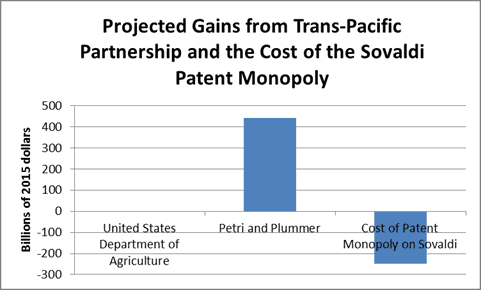SAN FRANCISCO and GENEVA, May 5, 2015 (GLOBE NEWSWIRE) — Amarantus BioScience Holdings, Inc. (OTCQB: AMBS), a biotechnology company focused on developing therapeutic and diagnostic products for neurological disorders and orphan indications, announced that it has received a Notice of Allowance from the U.S. Patent and Trademark Office (USPTO) for U.S. Patent Application Serial No. 13/305,025 entitled, “Dopaminergic Neuronal Survival Promoting Factors and Uses Thereof.” Upon issuance, the patent will provide additional intellectual property protection for MANF (mesencephalic-astrocyte-derived neurotrophic factor) protein therapy and cell therapy. The allowed patent claims cover compositions of matter and methods of use related to the Company’s proprietary manufacturing process for synthetic MANF and its administration.
Native MANF is currently under development for the treatment of orphan ocular indications, including retinitis pigmentosa (RP). Amarantus recently received orphan drug designation for MANF for the treatment in RP in the United States and in Europe. In addition, MANF proteins have demonstrated proof-of-concept in preclinical models to treat a wide range of conditions including retinal artery occlusion, glaucoma, macular degeneration, Parkinson’s disease (PD), diabetes and ischemic heart disease, among others.
“This Notice of Allowance is another important element in our intellectual property strategy that we believe will allow us to fully exploit the fundamental value of the research and development ongoing for MANF, both internally and via our collaborations,” said Gerald E. Commissiong, President & CEO of Amarantus. “MANF is being developed as a potential therapeutic intervention for orphan ocular diseases and other chronic disorders for which few, if any, viable disease-modifying treatment options exist.”
“This important step further signals the Company’s commitment to strengthening our industry-leading intellectual property portfolio surrounding MANF,” said John W. Commissiong, Ph.D., Amarantus CSO and co-discoverer of MANF. “We will continue to strengthen our robust intellectual property estate to further protect and maintain our proprietary rights, which we believe will not only allow us to capitalize on the known opportunities for MANF development, but will also further entrench Amarantus as the leading company for new collaborations in light of emerging potential MANF applications.”
The USPTO issues a Notice of Allowance after it makes a determination that a patent should be granted from a patent application.
About Mesencephalic-Astrocyte-derived Neurotrophic Factor (MANF)
MANF (mesencephalic-astrocyte-derived neurotrophic factor) is believed to have broad potential because it is a naturally-occurring protein produced by the body for the purpose of reducing and preventing apoptosis (cell death) in response to injury or disease, via the unfolded protein response. By manufacturing MANF and administering it to the body, Amarantus is seeking to use a regenerative medicine approach to assist the body with higher quantities of MANF when needed. Amarantus is the front-runner and primary holder of intellectual property around MANF, and is initially focusing on the development of MANF-based protein therapeutics. MANF, a naturally-occurring protein that reduces and prevents apoptosis (programmed cell death) in response to injury or disease, was discovered utilizing Amarantus’ proprietary PhenoGuard™Protein Discovery Engine.
MANF’s lead indication is retinitis pigmentosa, and additional indications including Parkinson’s disease, diabetes and Wolfram’s syndrome are currently pursued. Further applications for MANF may include Alzheimer’s disease, traumatic brain injury, myocardial infarction, antibiotic-induced ototoxicity and certain other rare orphan diseases currently under evaluation.
About Amarantus BioScience Holdings, Inc.
Amarantus BioScience Holdings (AMBS) is a biotechnology company developing treatments and diagnostics for diseases in the areas of neurology, psychiatry, ophthalmology and regenerative medicine. AMBS’ Therapeutics division has development rights to eltoprazine, a Phase 2b ready small molecule indicated for Parkinson’s disease levodopa-induced dyskinesia, adult ADHD and Alzheimer’s aggression, and owns intellectual property rights to a therapeutic protein known as mesencephalic-astrocyte-derived neurotrophic factor (MANF) and is developing MANF-based products as treatments for brain and ophthalmic disorders. AMBS’ Diagnostics division owns the rights to MSPrecise®, a proprietary next-generation DNA sequencing (NGS) assay for the identification of patients with relapsing-remitting multiple sclerosis (RRMS) at first clinical presentation, and owns intellectual property for the diagnosis of Parkinson’s disease (NuroPro). AMBS also owns the discovery of neurotrophic factors (PhenoGuard™) that led to MANF’s discovery.
Forward-Looking Statements
Certain statements, other than purely historical information, including estimates, projections, statements relating to our business plans, objectives, and expected operating results, and the assumptions upon which those statements are based, are forward-looking statements. These forward-looking statements generally are identified by the words “believes,” “project,” “expects,” “anticipates,” “estimates,” “intends,” “strategy,” “plan,” “may,” “will,” “would,” “will be,” “will continue,” “will likely result,” and similar expressions. Forward-looking statements are based on current expectations and assumptions that are subject to risks and uncertainties which may cause actual results to differ materially from the forward-looking statements. Our ability to predict results or the actual effect of future plans or strategies is inherently uncertain. Factors which could have a material adverse effect on our operations and future prospects on a consolidated basis include, but are not limited to: changes in economic conditions, legislative/regulatory changes, availability of capital, interest rates, competition, and generally accepted accounting principles. These risks and uncertainties should also be considered in evaluating forward-looking statements and undue reliance should not be placed on such statements.


